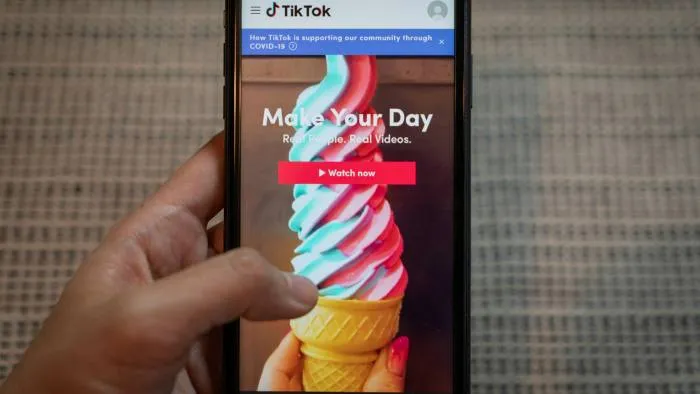
The popular Chinese video app TikTok is being sued for several billion pounds and accused of illegally collecting the personal information of millions of children in the UK and Europe.
The case, backed by the former children’s commissioner of England Anne Longfield, claims TikTok collects a huge volume of children’s private information while using the app — including phone numbers, pictures, videos, their exact location and biometric data — and transfers this information to unknown third parties for profit.
“We think parents and children will be shocked, and this is made much more serious for me because of the sheer scale of usage of this social media [app] by families and children of this age,” Longfield said. “According to Ofcom [the UK’s independent media regulator], 44 per cent of eight to 12-year-olds use TikTok. We think there is likely to be in the region of 3.5m children in the UK alone that fall within this claim and many more across Europe.”
The claim argued that children’s personal information was collected without sufficient consent, which for underage children would be required from an adult, or transparency. That constituted a “severe breach of UK and EU data protection law”, according to Tom Southwell, a partner at the law firm Scott + Scott, which is representing the plaintiffs in the case.
It was not the first time that TikTok’s data collection policies have come under fire. In 2019, the app, owned by Chinese company ByteDance, was fined a record $5.7m by the US Federal Trade Commission for allegedly illegally collecting personal information from children. The app was temporarily banned in India over allegations that it was “degrading culture and encouraging pornography”; it has since been shut out of the country.
TikTok, which is intended for users over 13, is currently under investigation by the UK Information Commissioner’s Office for similar data violations. “The ICO has been undertaking an investigation of TikTok’s compliance with UK data protection rules, including how it protects children’s information rights. Our work is nearing its conclusion and we intend to publish our findings later this year,” a spokesperson told the FT.
Aside from claiming thousands of pounds in compensation per child, Longfield said the plaintiffs would demand more transparency from the company over the data being collected, and that it be “more robust about the fact that this is an app that isn’t for under-13s”.
“Clearly, they know under-13s are using it, companies often say kids put the wrong age on but my view is that isn’t good enough,” she said. “Knowing kids will do that, you need additional measures to provide more robust verification of children when they are online.”
TikTok said: “[W]e have robust policies, processes and technologies in place to help protect all users, and our teenage users in particular. We believe the claims lack merit and intend to vigorously defend the action.”
Governments around the world have started to take a hard line on protecting children online. The UK recently introduced a draft of its Online Safety Bill, which will set out duty of care requirements for tech platforms.
In the US, members of both the Senate and the House of Representatives told the Financial Times last week that they want to pass laws to curb social media companies that offer products aimed at under-16s, particularly around issues of data and privacy.
Longfield added: “I would like to see this is as a landmark case to make it clear that there are limits to what families are willing to sign up to, with social media companies.”




















